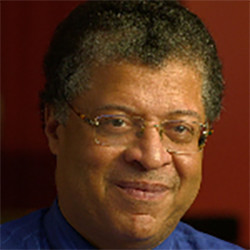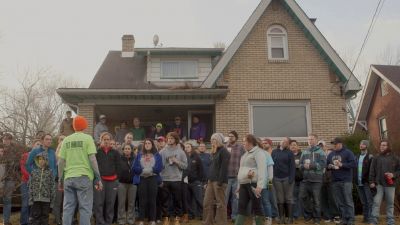
The ‘Big Short’ focuses on the traders who saw the storm coming. From left to right: Jeremy Strong, Rafe Spall, Hamish Linklater, Steve Carell, Jeffry Griffin and Ryan Gosling. Credit: Paramount Pictures
So I saw The Big Short and I’m now wondering whether I should blame Oliver Stone or feel sorry for him.
To be clear, Oliver Stone has nothing whatsoever to do with The Big Short — except, perhaps, by inadvertently enabling the behavior that, over time, helped wreck the economy and, thus, millions of lives.
I refer to Stone’s 1987 drama, Wall Street, which was one of the cinematic precursors to Big Short in its muckraking exposure of insider trading, securities fraud and roguish capitalist behavior. Yet if you asked people, today, right now, what it is they remember most about that movie it isn’t its plot, its politics or even a presumably sober Charlie Sheen. It’s the “Greed is Good” speech by Gordon Gekko (Michael Douglas), its foxy baddie and Ivan Boesky-esque scofflaw.
The speech not only helped Douglas collect an Oscar, but became for subsequent generations of stock traders, investment bankers and wannabe speculators their Sermon on the Mount, Gettysburg Address, Henry V’s Agincourt pep talk and “I-Have-A-Dream” wrapped in one rhetorical, bacon-wrapped steak sandwich.
In other words, it became a justification for getting-rich-at-any-cost — which is hardly what Stone intended. I imagine he must sometimes feel, given what these clowns have done in the intervening 28 years, like somebody who can’t understand why his perfectly calibrated pipe bomb blew up his own garage.
One could imagine the characters represented in Big Short watching Gordon Gekko speechify in a big dark multiplex at an impressionable age and thinking, maybe even saying out loud, “Preach!” The most vocal witness, for sure, would have been a teenage version of Jared Vennett (Ryan Gosling), the smug smoothie who is the guide writer-director Adam McKay (2004’s Anchorman, 2006’s Talladega Nights, 2013’s Anchorman 2) has chosen to escort his audience through all the story’s complexities – narrative, economic and otherwise.
As with other characters in McKay’s movie, Vennett is a surrogate character representing real people depicted in journalist Michael Lewis’ best-selling 2010 account of the collapse, The Big Short. Vennett, a trader for Deutsche Bank, is one of a handful of outliers in the financial world who from different vantage points foresaw the disaster. Vennett assures you that he is, by far, the coolest of this crew – or, as he might put it, the only one who isn’t a dork.
The dorkiest is also the only one who keeps his real name in the film: Dr. Michael Burry (Christian Bale), a former neurologist who created his own hedge fund. Burry, who is shown playing phantom drums with a pair of sticks while listening to “Death Metal” music through headphones, notices something screwy going on with subprime markets as far back as 2005 and predicts a bursting bubble within two years. He acts upon his instincts by persuading Goldman Sachs to sell him credit-default swaps against subprime deals. Goldman Sachs giggles, investors angrily abandon him, but he insists he’s right.
Burry, by the way, lost an eye playing football as a young boy and the analogy of the one-eyed man ruling a kingdom of the blind would be irresistible if there weren’t others who saw the same things he did; notably Mark Baum (Steve Carrell), a disaffected Wall Streeter who engages in the same “short” that Burry does as a means of getting back at the big investment banks. Then, there are a couple of college buddies (Finn Whitrock, John Magaro) who create what some other character dismisses as a “garage band” fund. They make their own variation on the “short” with guidance from their own private Yoda: a Wall Street whiz-in-exile named Ben Rickert (Brad Pitt). He warns them, however, that if they win their gamble, the economy loses — and so do millions of ordinary people.
By the way, if you’re stuck on what “swaps” mean or how “subprime” mortgages work, McKay’s movie explains these and other complicated terms along the way with the help of such celebrities as The Wolf of Wall Street’s breakout star Margot Robbie (in a bubble bath no less), chef Anthony Bourdain and singer Selena Gomez. The movie also takes in the full panoply of run amok investment, as in the Florida housing boom with its instant millionaires and strippers (yes, strippers) who proudly claim two, three, even four houses of their own. All we can think is: Toast. They’re all burnt toast.
If Gosling’s Vennett, who has his own variation of the “short” cooking, is the movie’s crisply tailored satyr, then Carrell’s Baum is its rumpled stricken conscience who seems to move throughout the picture wincing and straining from the burden of what he knows is about to overwhelm people’s lives. Towards the end of the film, he lets loose before an audience of investors, speculators and various other suits to decry the blinkered rapacity, heedless self-gratification and appalling dearth of conscience that’s led to a culture of fraud so pervasive, Baum says, it envelops “even baseball.” As if an earlier clip of a belligerent Barry Bonds on another character’s TV doesn’t hammer home, so to speak, that latter point.
There’s a lot of hammering in The Big Short in contrast to such cooler, drier dramatizations as 2011’s exemplary Margin Call. But there can never be enough of these movies and there can never be too much hammering because, as McKay’s movie implies, it’s been almost a decade since Dr. Burry and others detected the first signs of financial Armageddon and not only are we still not altogether sure how it happened, we seemed to have stopping caring either way. And if you wonder how McKay, a director best known for broad bromantic farce, presumes to take on such a serious story, you need to consider the possibility that a farceur who specializes in egregious cluelessness (I did mention he directed both Anchorman and its sequel, didn’t I?) may be the ONLY sensibility who can tell such a story without mitigating his own indignation with credulous greedheads who nearly ended the world as we knew it.
If there’s one thing The Big Short doesn’t – and can’t – do, it’s to display the full range of real-life consequences of the collapse beyond clips of people living out of their cars and ex-real estate moguls sullenly trolling through job fairs. Some of our eyes may get blurry when we hear lectures on credit defaults and sub-primes. But the impact of the 2008 collapse on men, women and children is even harder for some to contemplate and we may still be a few years removed from movies that are able to tell those stories. I just hope that it’ll be another 28 years before we need another movie to remind us how bad greed can be.




